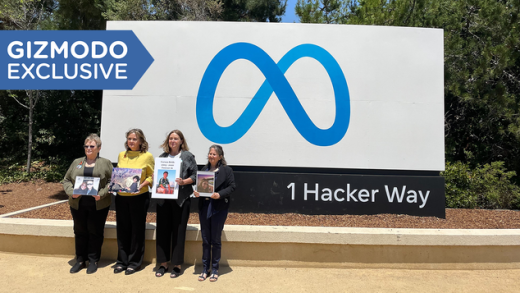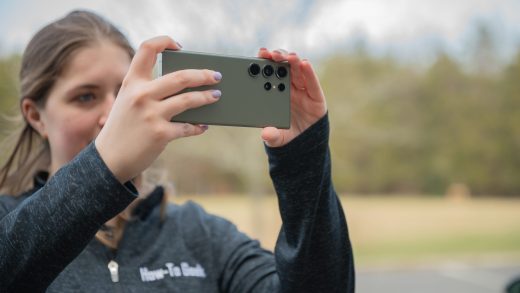I gave birth to my daughter in 2019, we were sequestered in our Brooklyn apartment in 2020, and the isolation of the pandemic and early motherhood in those years changed the way I read. I am a more appetitive reader now, desperate for the company and consolation of books. But I’m also pickier and discard partially read books with no regret and, sometimes, eagerness. I have books of my own to write, a child with a runny nose that keeps her in and out of daycare, and an unrelenting desire to lie in bed and do not a damn thing.
The first book I read in 2021 was Milk Blood Heat by Dantiel Moniz, an arresting debut story collection about girlhood, desire, and embodiment. It hooked me from the beginning and didn’t let me go until the last page. By happy accident, I found the book on a display table at my local indie bookstore before its set release date, and I bought my copy furtively. I read at night after I’d put my daughter to sleep.

 Even before I became a parent, I was hungry for stories about families: families that are falling apart, families that are being reconstituted, families full of lonely, yearning people. I was thrilled when two writers I admire, Patricia Engel and Kaitlyn Greenidge, released new novels about families. Engel’s Infinite Country is about a Colombian American family divided by deportation, and it’s steeped in myth and longing and grief. Greenidge’s Libertie is about a 19th-century Black woman in search of her own life and autonomy; she is the unexceptional but daring daughter of one of the first Black female doctors in New York. Their books reminded me of why I read and write fiction—it transports us, yes, sure, but it also takes us deeper into ourselves, the richness and limits of our own imagination and experiences. I was grateful for the reminders, which I needed. My second novel, What’s Mine and Yours, was released in March, and it was an exhilarating, distorting time, during which I came close to believing that my work as a writer is to be well-liked and look well-lit on Instagram Live.
Even before I became a parent, I was hungry for stories about families: families that are falling apart, families that are being reconstituted, families full of lonely, yearning people. I was thrilled when two writers I admire, Patricia Engel and Kaitlyn Greenidge, released new novels about families. Engel’s Infinite Country is about a Colombian American family divided by deportation, and it’s steeped in myth and longing and grief. Greenidge’s Libertie is about a 19th-century Black woman in search of her own life and autonomy; she is the unexceptional but daring daughter of one of the first Black female doctors in New York. Their books reminded me of why I read and write fiction—it transports us, yes, sure, but it also takes us deeper into ourselves, the richness and limits of our own imagination and experiences. I was grateful for the reminders, which I needed. My second novel, What’s Mine and Yours, was released in March, and it was an exhilarating, distorting time, during which I came close to believing that my work as a writer is to be well-liked and look well-lit on Instagram Live.

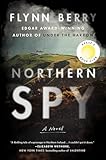 I was consumed that spring by speaking and thinking about my own work, and I hardly read. Thankfully, I’d assigned The Office of Historical Corrections by Danielle Evans to my MFA students, and it was a relief to slip into the sharp, exquisite stories, especially the hauntingly brilliant title novella. During this time, I also listened to the thriller Northern Spy by Flynn Berry. It is a “book club book,” and after my second novel was sorted into this genre, I wanted to understand what else was in this camp. I was wholly absorbed by this story about a journalist and single mother who discovers her sister has joined the IRA. There are twists, danger, and action, but also sensitive narration about what it’s like to care for an infant, to work and mother, to walk around in a strange, new postpartum body, filled with more love and fear than you were sure you could contain.
I was consumed that spring by speaking and thinking about my own work, and I hardly read. Thankfully, I’d assigned The Office of Historical Corrections by Danielle Evans to my MFA students, and it was a relief to slip into the sharp, exquisite stories, especially the hauntingly brilliant title novella. During this time, I also listened to the thriller Northern Spy by Flynn Berry. It is a “book club book,” and after my second novel was sorted into this genre, I wanted to understand what else was in this camp. I was wholly absorbed by this story about a journalist and single mother who discovers her sister has joined the IRA. There are twists, danger, and action, but also sensitive narration about what it’s like to care for an infant, to work and mother, to walk around in a strange, new postpartum body, filled with more love and fear than you were sure you could contain.
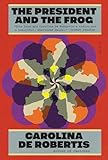
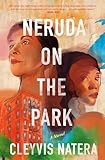
 My slow reading spring gave way to a rich reading summer. I never managed to read at the beach, although I dutifully carried my books with me to Jacob Riis and Sunken Meadow and Martha’s Vineyard. Instead, I built sandcastles and assembled snacks, carried my kid into the water so we could jump over the waves. At night I made my way through a string of wonderfully singular, surprising novels, the kind that offer much more than a synopsis can convey. I am a huge fan of Carolina De Robertis, and I treasured her slim, expansive, philosophical novel, The President and the Frog, about the former president of a small country in Latin America who finds his way into power and out of hopelessness through a series of conversations with a frog who appears to him while he is in prison. De Robertis has called the book a love letter for anyone in despair, and it is. I couldn’t wait to press the book into the hands of everyone I knew who’d had a shit year. After, I read an early copy of Neruda on the Park by Cleyvis Natera, a debut novel arriving in 2022. It was a book I couldn’t pin in terms of genre in the most exciting way—it’s the intimate story of a Dominican family, a mother and daughter coming loose from one another, and, in the process, each becoming more fully realized. It’s sexy and suspenseful, but it’s also a poignant examination of how trauma reverberates across generations. I loved it. The last knockout novel I read over the summer was A Lie Someone Told You About Yourself by Peter Ho Davies, a funny, tender, painful portrayal of parenthood. I kept reading lines out loud to my husband and texting my mom friends to say, Have you read this book? You have to read this book.
My slow reading spring gave way to a rich reading summer. I never managed to read at the beach, although I dutifully carried my books with me to Jacob Riis and Sunken Meadow and Martha’s Vineyard. Instead, I built sandcastles and assembled snacks, carried my kid into the water so we could jump over the waves. At night I made my way through a string of wonderfully singular, surprising novels, the kind that offer much more than a synopsis can convey. I am a huge fan of Carolina De Robertis, and I treasured her slim, expansive, philosophical novel, The President and the Frog, about the former president of a small country in Latin America who finds his way into power and out of hopelessness through a series of conversations with a frog who appears to him while he is in prison. De Robertis has called the book a love letter for anyone in despair, and it is. I couldn’t wait to press the book into the hands of everyone I knew who’d had a shit year. After, I read an early copy of Neruda on the Park by Cleyvis Natera, a debut novel arriving in 2022. It was a book I couldn’t pin in terms of genre in the most exciting way—it’s the intimate story of a Dominican family, a mother and daughter coming loose from one another, and, in the process, each becoming more fully realized. It’s sexy and suspenseful, but it’s also a poignant examination of how trauma reverberates across generations. I loved it. The last knockout novel I read over the summer was A Lie Someone Told You About Yourself by Peter Ho Davies, a funny, tender, painful portrayal of parenthood. I kept reading lines out loud to my husband and texting my mom friends to say, Have you read this book? You have to read this book.

 By fall, with the start of the school year, my kid and I were struck with one bug and then another, and soon we were in a cycle of monthly illness and sick days. Most nights I wanted only to stare at the ceiling or my phone, and I often did. I listened to two memoirs that enlivened those days, Crying in H Mart by Michelle Zauner and Surviving the White Gaze by Rebecca Carroll. Both render troubled, messy families and take on questions of identity, mixedness, and race. Zauner tells the story of loving and losing her mother with great open-heartedness. And I wanted to live inside Carroll’s mind, her keenness and wisdom. She powerfully narrates and turns over experiences from her relationship with her white adoptive parents and white birth mother, her Black birth father, her siblings, lovers, teachers, friends, and ultimately herself and her own Blackness. As soon as I finished the book, I knew that one day I’d read it again. Carroll’s voice is still in my head.
By fall, with the start of the school year, my kid and I were struck with one bug and then another, and soon we were in a cycle of monthly illness and sick days. Most nights I wanted only to stare at the ceiling or my phone, and I often did. I listened to two memoirs that enlivened those days, Crying in H Mart by Michelle Zauner and Surviving the White Gaze by Rebecca Carroll. Both render troubled, messy families and take on questions of identity, mixedness, and race. Zauner tells the story of loving and losing her mother with great open-heartedness. And I wanted to live inside Carroll’s mind, her keenness and wisdom. She powerfully narrates and turns over experiences from her relationship with her white adoptive parents and white birth mother, her Black birth father, her siblings, lovers, teachers, friends, and ultimately herself and her own Blackness. As soon as I finished the book, I knew that one day I’d read it again. Carroll’s voice is still in my head.
 The last novel I read was Dawnie Walton’s remarkable The Final Revival of Opal and Nev. It takes the form of an oral history following a music journalist as she pieces together her own family history by digging into the creation, dissolution, and highly anticipated reunion of a controversial, ’70s-era punk rock duo. It was moving, smart, and original, and the fictional icon, Opal, is a legend I will never forget. The story moved me deeply as a writer, a Black woman, a former emo kid, and an artist. It was the kind of book that made me feel it didn’t matter how much or how little I’d read this year because what I’d read added so richly to my life.
The last novel I read was Dawnie Walton’s remarkable The Final Revival of Opal and Nev. It takes the form of an oral history following a music journalist as she pieces together her own family history by digging into the creation, dissolution, and highly anticipated reunion of a controversial, ’70s-era punk rock duo. It was moving, smart, and original, and the fictional icon, Opal, is a legend I will never forget. The story moved me deeply as a writer, a Black woman, a former emo kid, and an artist. It was the kind of book that made me feel it didn’t matter how much or how little I’d read this year because what I’d read added so richly to my life.
More from A Year in Reading 2021 (opens in a new tab)
Do you love Year in Reading and the amazing books and arts content that The Millions produces year round? We are asking readers for support to ensure that The Millions can stay vibrant for years to come. Please click here to learn about several simple ways you can support The Millions now.
Don’t miss: A Year in Reading 2020, 2019, 2018, 2017, 2016, 2015, 2014, 2013, 2012, 2011, 2010, 2009, 2008, 2007, 2006, 2005
The post A Year in Reading: Naima Coster appeared first on The Millions.


